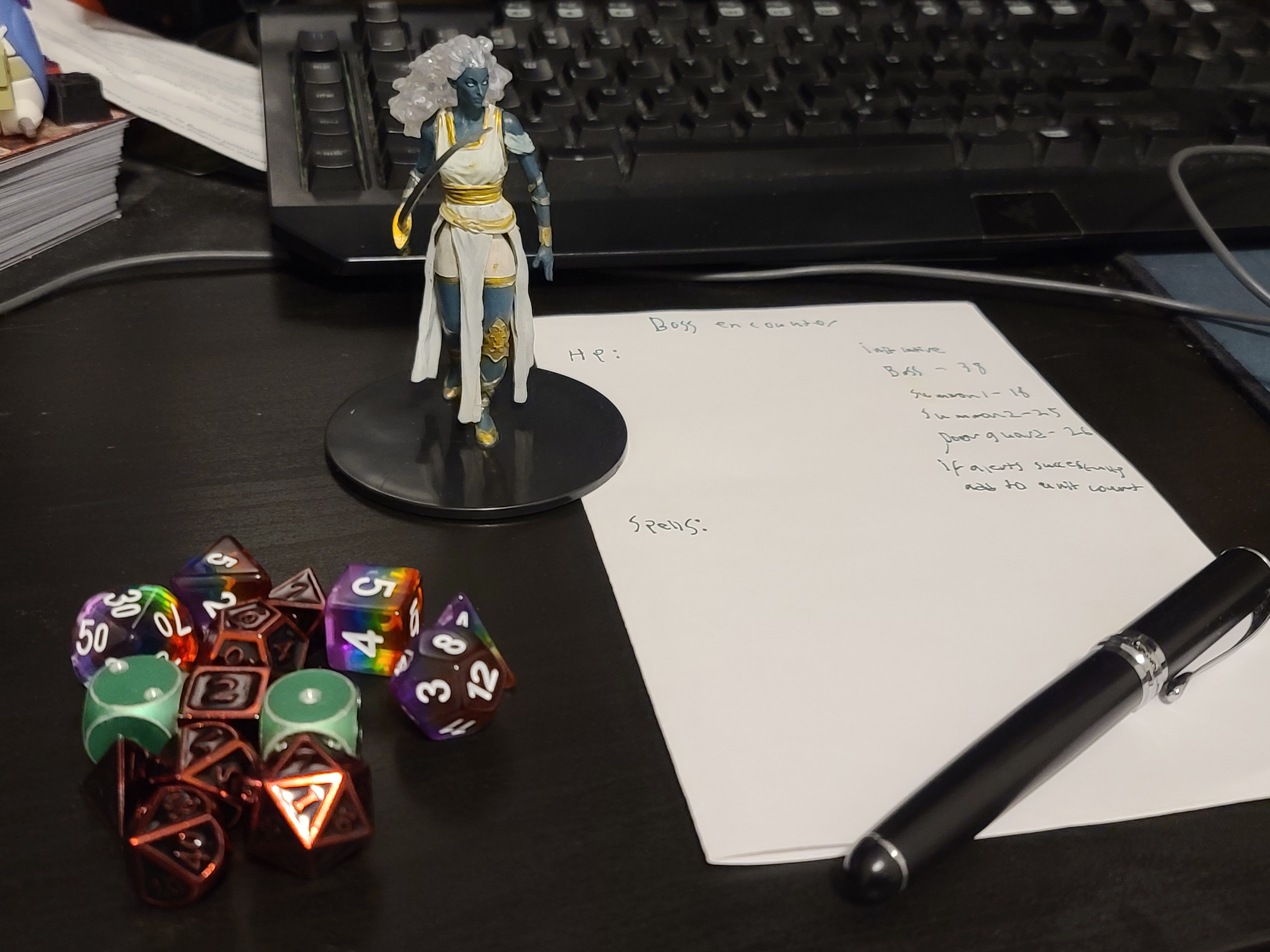
From incorporating break times to leaving them wanting more
By Jacey Gibb, Distribution Manager
Welcome to Dinguses and Dragons, a weekly column aiming at demystifying and introducing the game of D&D to new and potential players
There’s no such thing as a formula for the perfect D&D session. You can have an amazing story hook, experienced players, and a nefarious villain all prepared, and sometimes the session will just… fall flat. However, there are structural things you can do as a Dungeon Master (DM) to set everyone up for a successful evening of adventuring.
Start with a recap: whether you’re playing a weekly, monthly, or yearly campaign, start things off with a recap. What happened last session? Were any important characters introduced or are there plot points that need to be revisited? A recap helps everyone get reorientated with the game but can also draw attention to smaller details that might be important later on. I always take 15 to 20 minutes after a session to type out whatever happened while it’s fresh in my memory since even DMs can forget.
Include bathroom/snack/beverage breaks: stopping the game every hour and a half or so to give folks a break helps keep everyone on the same page. There’s nothing worse than a player excusing themselves to use the bathroom just as you’re about to ambush the party or have a big reveal. Unplanned bathroom breaks can also ruin a scene’s momentum. Build these breaks into the slower moments, so everyone’s ready for action when it strikes.
Agree on a rough(ish) end time: forget dragons—organizing the schedules of different adults is the real challenge to overcome when playing D&D. Discuss beforehand what everyone’s schedules are like, and what would be a good wrap-up time, adding that sometimes you might end earlier or later. As the DM, keep an eye on the time and know when to move things along or add interference as needed.
Streamline your combat: if there’s potential for combat, have all the stats and enemies ready to go. Have your players’ armour classes on-hand so you immediately know if something hits or misses them. I even pre-roll initiative for every non-player character. The more you have ready beforehand, the less you have to do during gameplay.
Have diverse gameplay during your sessions: a session with only combat, puzzles, or roleplaying can feel monotonous, so incorporate a healthy blend. Or alternate roleplay- or combat-heavy sessions to mix it up or try orchestrating combat at the start of a session rather than building up to it. You never want your players to know what to expect from a session.
End on a cliff-hanger: too soap opera-y? Perhaps. But ending your session with a big reveal will get people itching for the next time you play. Maybe a character double-crosses them, or someone is kidnapped, or even just a mysterious stranger approaches them. Leaving the cliff-hanger intentionally vague also means you have time to flesh things out before the next session.

